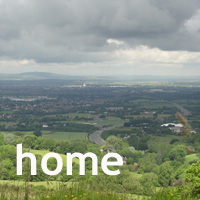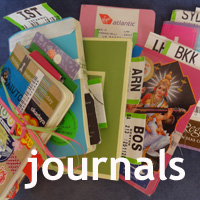Word games
 Sunday, September 20, 2015 at 12:50PM
Sunday, September 20, 2015 at 12:50PM
The last three days have been really fascinating.
I spent Thursday in Gloucester, working with an OFSTED inspector who shared his professional expertise in a training session for members of the Observation and Support team. For several years we’ve graded the teaching and learning we see on a scale of 1-4. Grade 1 is applied to an outstanding session and if we’ve identified such outstanding practice, then our report must have plenty of evidence, expressed with sufficient superlative phrases. A less than outstanding session might involve more use of an adjective from the “good” or “satisfactory” lists which we have to refer to when writing reports; a kind of coded indication of our grading judgements. However, we are moving away from applying a numerical grade and discussion centred on whether our reports will imply a grade nevertheless, as a result of the words we choose to use. After all, if we make a note of excellent teaching and exemplary differentiation which enables highly effective learning, won’t it simply be identified as a “Grade 1” lesson?
Maybe we should avoid using such grade-specific language, then? Perhaps by choosing our words carefully we can write our reports in a way that makes it difficult to infer a numerical grade? One witty colleague suggested “not as bad as it could have been” In any case, it looks like we are going to be expected to pussyfoot around, avoiding the use of any grade-specific language and probably using rather a lot of mitigators instead of being clear and concise as has previously been expected.
(If you are interested in more about this, there’s an interesting discussion here)
The most important thing, in my opinion, is to give clear and affirmative feedback. No-one wants to be told they are not doing well, we don’t want to have our work pulled to pieces or be given the impression we are wasting our time. I would much rather have an honest and constructive evaluation of my work and some suggestions about how I could improve. I don’t need a number or a grade, either. So perhaps that’s where we’re going with this? I hope so!
But you know, the WI got there first.
Yesterday, I was judging my last show of the season, in Moreton in Marsh. 43 entries in six different classes and two hours to evaluate the entries, to find the winners and offer feedback. The tried and tested NFWI Craft Judging system was as effective as ever and as I worked my way through a class of beautifully knitted socks and gloves, a class of assorted pincushions and onto a mixed class of all kinds of amazing things, I got into my groove of identifying skills, giving credit for great craftsmanship and good choices of material and design. Sadly, even an experienced craft judge can’t write comments for 43 items in a couple of hours (we are trained to judge 15 items per hour – that’s four minutes to write a mark and a comment on each) so I wasn’t able to share my thoughts except in a class comment explaining what I’d been looking for and why the winners won. But had I the time, I would have loved to have complimented the makers of matching socks, those who made exquisite cards and kept them crisp and fresh and who were brave enough to handwrite a greeting inside them. I might have offered advice about casting on a sock loosely enough to be comfortable (google “stretchy cast on method” to find out how) and praised the maker of a beaded bracelet for her tenacity in getting all those teeny-weeny beads into place. I’d have used my lexicon of words and phrases, compiled during my training and continually revised and updated, which I keep in my pocket and refer to from time to time. Most importantly, I’d need to make sure that my words matched the marks, because just like OFSTED, a WI judge shouldn’t describe an entry she’s just awarded 17 marks out of 20 as “excellent”.
It’s all about the feedback, isn’t it?
All of this was very much on my mind as I took my place on a panel interviewing nominees for the “people” categories of the UK Bus Awards. We had met earlier in the Summer to make a shortlist on the basis of their nominations and I’d lost count of the number of times I read about managers “having an open door policy” and drivers “going the extra mile” because, once again, it’s all about the words, isn’t it? How refreshing then, to meet those we’d identified as potential winners and to hear their enthusiasm shine through their nervous presentations. We judges had the benefit of a WI-style marksheet so we could score each finalist on different aspects of their professional ability and following their presentation, an opportunity to ask questions.
Whether or not it was as a result of everything else I’ve been doing lately, or simply because I empathised with each one of the finalists doing their best to keep it together, I couldn’t help but preface my question (usually about professional development) with some positive and constructive feedback. Thankfully, since they were all finalists and at the top of their game, professionally speaking, I could use plenty of superlatives. I didn’t need a list or a code, I could simply offer my opinion.
I seem to have plenty of them
 work
work 







Reader Comments